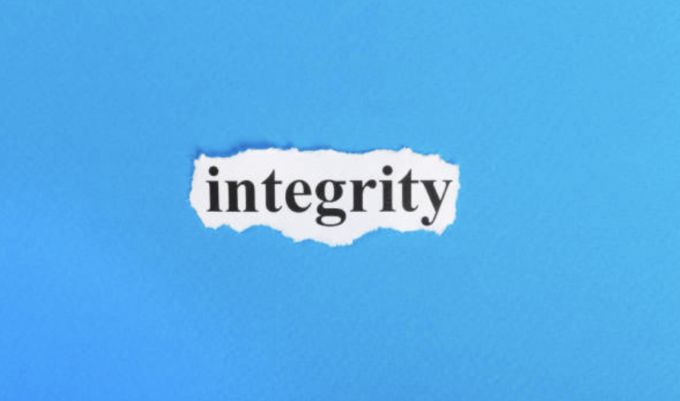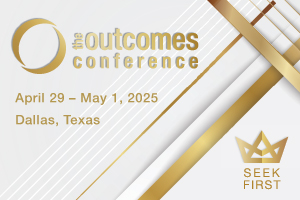
Evaluating Integrity in the Job Applicant Dr. Ken Byrne

Practical Tips in the Search for Integrity
Hiring a new employee means understanding their character and integrity. Integrity is the most important trait you will be interested in, yet it can be the most challenging to assess. This blog outlines some practical tips for gaining clues about potential flaws in integrity.
The Application
Remember that this document is designed to sell the candidate. It is written to gain an invitation to an interview.
- If you are using a recruitment agency, never accept the resume they put forward. Always insist on seeing the resume that the applicant gave to the agency. You can be certain the one that the agency provides will be well polished to hide any blemishes. It will also disguise potentially helpful clues.
- The resume should outline the person’s work history by month and year. Always question a resume when people report working by the year only.
Case Example: On their resume, one candidate listed being employed with a company from 2000 to 2002. On inquiry, I learned that he joined the company in December 2002 and left in January 2004. What looked like two years of employment was fourteen months
- Note very carefully any gaps in employment. Certainly, there can be good reasons for this. On the other hand, by closely questioning this area I have uncovered applicants who have been in prison or in a psychiatric hospital.
- The resume should explain past job responsibilities clearly and easily. Carefully question anything vague.
Case Example: Someone applying for an administrative role included among her past duties the following: “Responsible for integrating the relationship management system with all suppliers to enhance effective communications and ensure timely product availability.” What did this mean?
On questioning this, I learned that her co-workers each had a list of the phone numbers of the individual suppliers they dealt with. This person typed up a list of all suppliers with their phone numbers, photocopied it, and gave it to everyone in the office.
The Interview
It is essential that the interview be carefully structured. Fifty years of psychological research has repeatedly proven that the casual, “get to know you” open-ended and unstructured conversation is very likely to produce a bad hire.
Be alert for the following:
- If the applicant claims success at something, determine whether this was something they did on their own or as part of a team.
- To learn about past mistakes, use this statement. “Everyone learns lessons from life. That’s just the way life is. (No one can disagree with this proposition.) Tell me about the three most significant lessons you have made in recent years.”
Once you have noted the three lessons, for each one, ask, “How did you learn that lesson?”
You will find that most people learn lessons from having made mistakes. Be particularly alert for the candidate who avoids taking any responsibility for the mistake.
Reference Checking
Reference checking should be done in two stages:
Part one: After you have developed a shortlist, a reliable administrative person should be asked to phone each of the institutions where this person says they have earned a certificate or degree. They simply need to enquire whether the organization’s records reflect that this was granted, and the year in which this was done.
Case Example: A candidate was hired for the position of social worker. Once it became clear that he was a problem performer, this information was obtained.
Despite having claimed a Master’s Degree in Social Work, he had never completed college. A phone call would have revealed this before he was hired.
Part two: After the interviews have been completed, one member of the selection panel should speak to three past employers of each finalist.
This requires a structured interview format. While all of the questions should be asked for each candidate, this is best done in a conversational tone.
Among the questions you should ask are:
- Was there ever a time when you—or anyone else working with you—expressed any doubts about this candidate’s integrity?
- What were the things that you – even in your mind – wished this person had done differently?
- Would you hire this person again without any reservations?
Conclusion
Following these steps will give you clues to evaluate the integrity of job candidates. Remember, there are no perfect solutions to this problem. You can tip the odds in your favor by following these steps carefully and rigorously, without exception.
####
Dr. Ken Byrne has been an independent organizational psychologist for over forty years. This blog is adapted from Hire Right, First Time: A Practical Guide for Staffing Christian Organisations, co-authored by Ken and Rev. Peter Corney.

Attention Christian Leadership Alliance Members!
Enrollment for the Academy Summer Term courses is open through June 10, 2024
CCNL3 Relationship | Connecting Hearts to Ministry Mission | CCNL Required 20 Points | ENROLL HERE
Lead Like Jesus | Heart, Head, Hands, and Habits | CCNL Elective 20 points | ENROLL HERE
Thanks to the Outcomes Academy and June Blog Sponsor –





